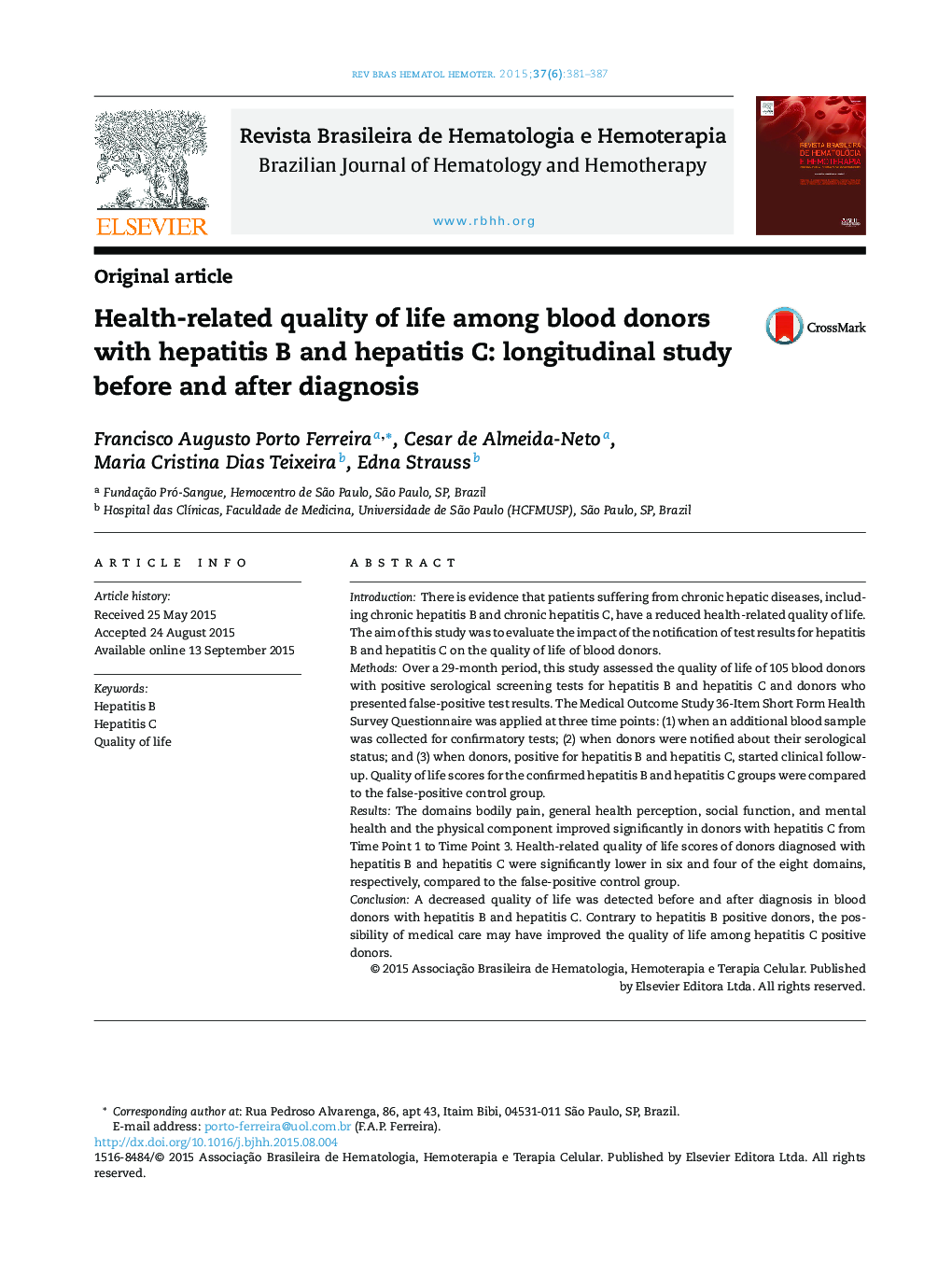| Article ID | Journal | Published Year | Pages | File Type |
|---|---|---|---|---|
| 3332935 | Revista Brasileira de Hematologia e Hemoterapia | 2015 | 7 Pages |
IntroductionThere is evidence that patients suffering from chronic hepatic diseases, including chronic hepatitis B and chronic hepatitis C, have a reduced health-related quality of life. The aim of this study was to evaluate the impact of the notification of test results for hepatitis B and hepatitis C on the quality of life of blood donors.MethodsOver a 29-month period, this study assessed the quality of life of 105 blood donors with positive serological screening tests for hepatitis B and hepatitis C and donors who presented false-positive test results. The Medical Outcome Study 36-Item Short Form Health Survey Questionnaire was applied at three time points: (1) when an additional blood sample was collected for confirmatory tests; (2) when donors were notified about their serological status; and (3) when donors, positive for hepatitis B and hepatitis C, started clinical follow-up. Quality of life scores for the confirmed hepatitis B and hepatitis C groups were compared to the false-positive control group.ResultsThe domains bodily pain, general health perception, social function, and mental health and the physical component improved significantly in donors with hepatitis C from Time Point 1 to Time Point 3. Health-related quality of life scores of donors diagnosed with hepatitis B and hepatitis C were significantly lower in six and four of the eight domains, respectively, compared to the false-positive control group.ConclusionA decreased quality of life was detected before and after diagnosis in blood donors with hepatitis B and hepatitis C. Contrary to hepatitis B positive donors, the possibility of medical care may have improved the quality of life among hepatitis C positive donors.
